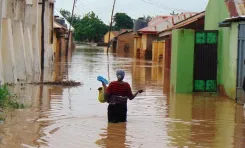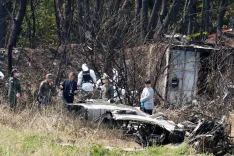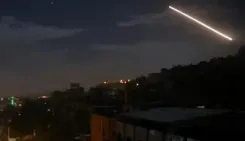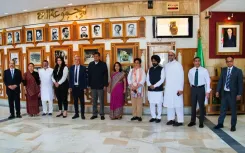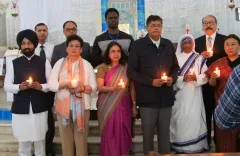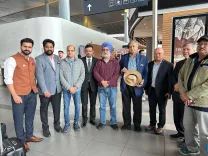What Happened in Pakistan: One Fatality in Police Action Against Anti-Canal Protesters in Sindh?
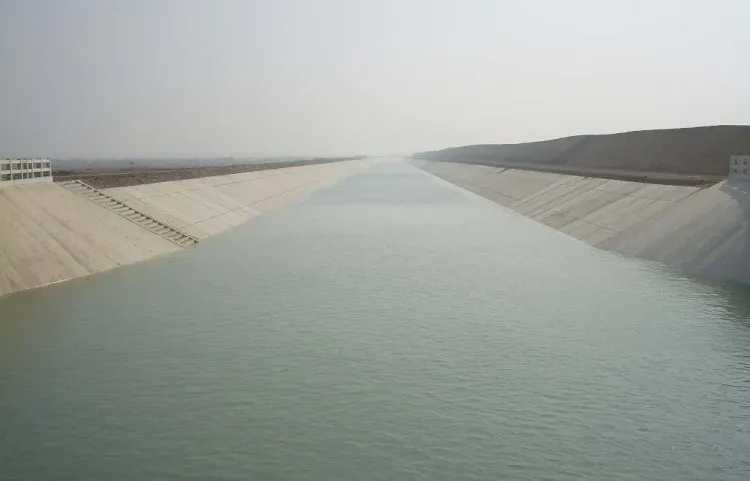
Synopsis
In a harrowing incident in Sindh, police forces clashed with anti-canal protesters, resulting in one death and multiple injuries. The escalation highlights growing tensions over water rights and regional protests against government projects. As unrest spreads, the Sindhi community's determination to protect their resources becomes increasingly apparent.
Key Takeaways
- One individual died during police action against protesters.
- Protests erupted over the Cholistan irrigation project.
- Police used force to disperse demonstrators.
- Sindhi leaders are advocating for water rights preservation.
- The situation remains tense with ongoing sit-ins and protests.
Sindh, May 21 (NationPress) A tragic incident unfolded as one individual lost their life and numerous others sustained injuries when police employed a baton charge and reportedly opened fire to disperse anti-canal protesters in Pakistan's Sindh province, according to local news reports.
The turmoil ignited in the city of Moro, located in the Naushahro Feroze district, where demonstrators were voicing their opposition against the proposed canal constructions over the Indus River by blocking the motorway bypass road.
In an effort to restore normal traffic flow, police resorted to force, leading to a chaotic escalation that included reports of gunfire, as detailed by local media.
During this crackdown, a planned roundtable conference organized by the Sindhi nationalist organization Sindh Sabha was disrupted due to a significant deployment of security personnel and road blockades near the Hyderabad Press Club, as highlighted by The Express Tribune.
Law enforcement detained several individuals, including multiple leaders from Sindh Sabha, who were confined within the conference venue. However, they later confirmed that a team of lawyers successfully intervened to escort their leaders to safety.
Sindh Sabha, known for advocating against the enforced disappearances of Sindhi nationalist activists, had convened the conference under the theme “Let's Join Hands to Take Steps for the Survival of Our Natural Homeland Sindh.”
The event aimed to unite various nationalist factions to strategize against the exploitation of Sindh's natural resources by the Sharif-led government.
Local news outlet, Dawn, reported that over four dozen activists from the Sindh Sabha Party, headed by Ashfaq Malik, initiated the road blockade in protest of corporate farming and the canal constructions associated with the contentious Cholistan project.
The Cholistan irrigation project, launched on February 15, has ignited widespread unrest in Sindh, where residents fear it will divert essential water resources from the Indus River to benefit agricultural lands in South Punjab.
In March, the Sindh Assembly unanimously passed a resolution opposing the initiative, reflecting longstanding regional concerns.
Protests advocating for the cancellation of the project have intensified in recent months, with several political factions, including the ruling coalition's significant partner PPP, participating.
The public's opposition has grown, fueled by perceptions of the federal government's neglect towards Sindh's water rights.
The situation is further complicated by the diplomatic fallout between India and Pakistan following the April 22 Pahalgam terror attack, which resulted in the deaths of 26 individuals at the hands of heavily armed terrorists, two of whom were identified as Pakistanis.
The Resistance Front (TRF), linked to the Pakistan-based terrorist organization Lashkar-e-Taiba, claimed responsibility for this attack.
In response to Pakistan-sponsored cross-border terrorism, India has suspended the Indus Waters Treaty (IWT).
Facing mounting pressure, the Sharif government announced last month that it would pause canal construction until a consensus is reached through the Council of Common Interests.
Nevertheless, the legal community in Sindh continues to maintain sit-ins across the province, insisting on a formal and permanent cancellation of the Cholistan project.

